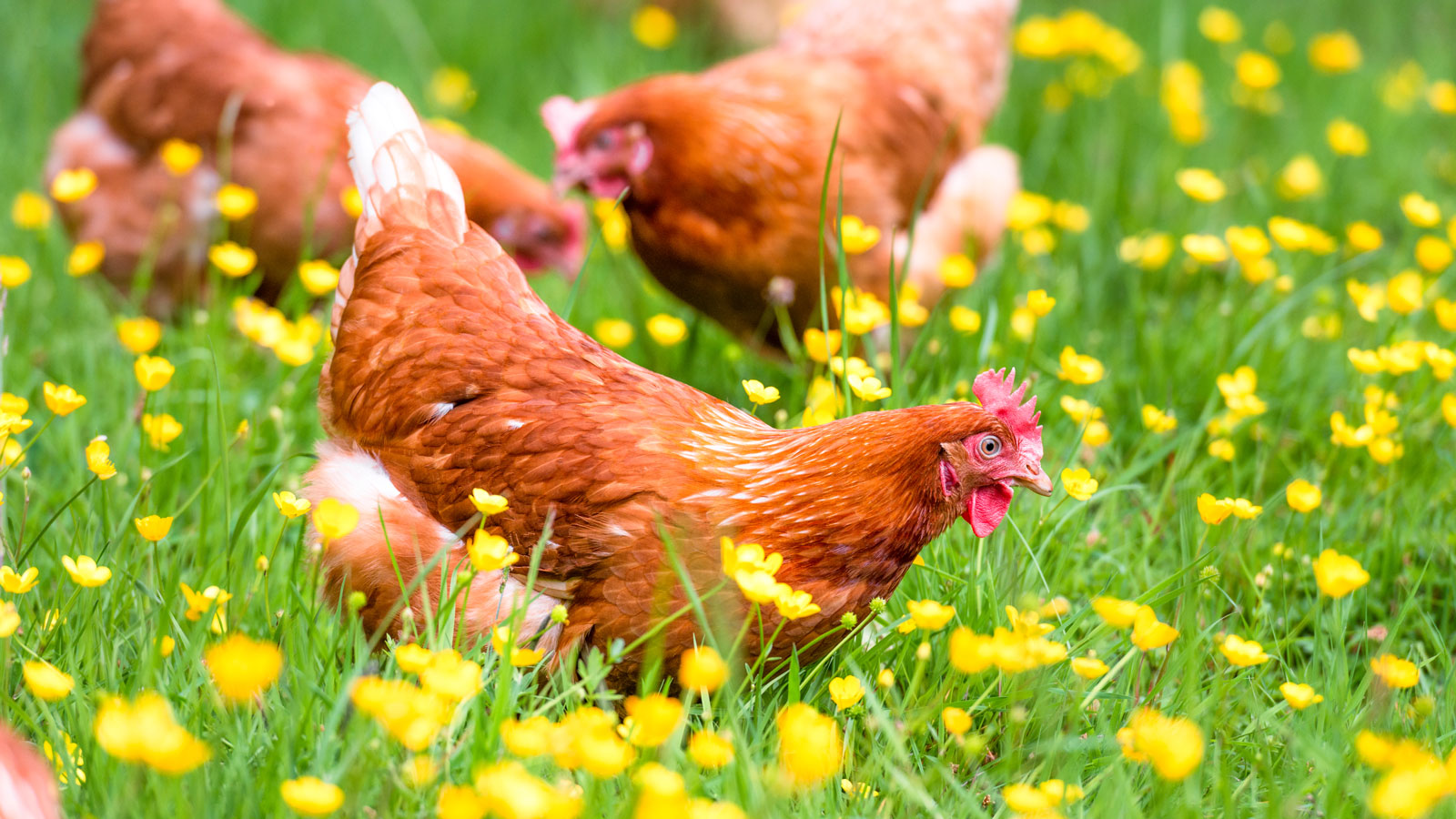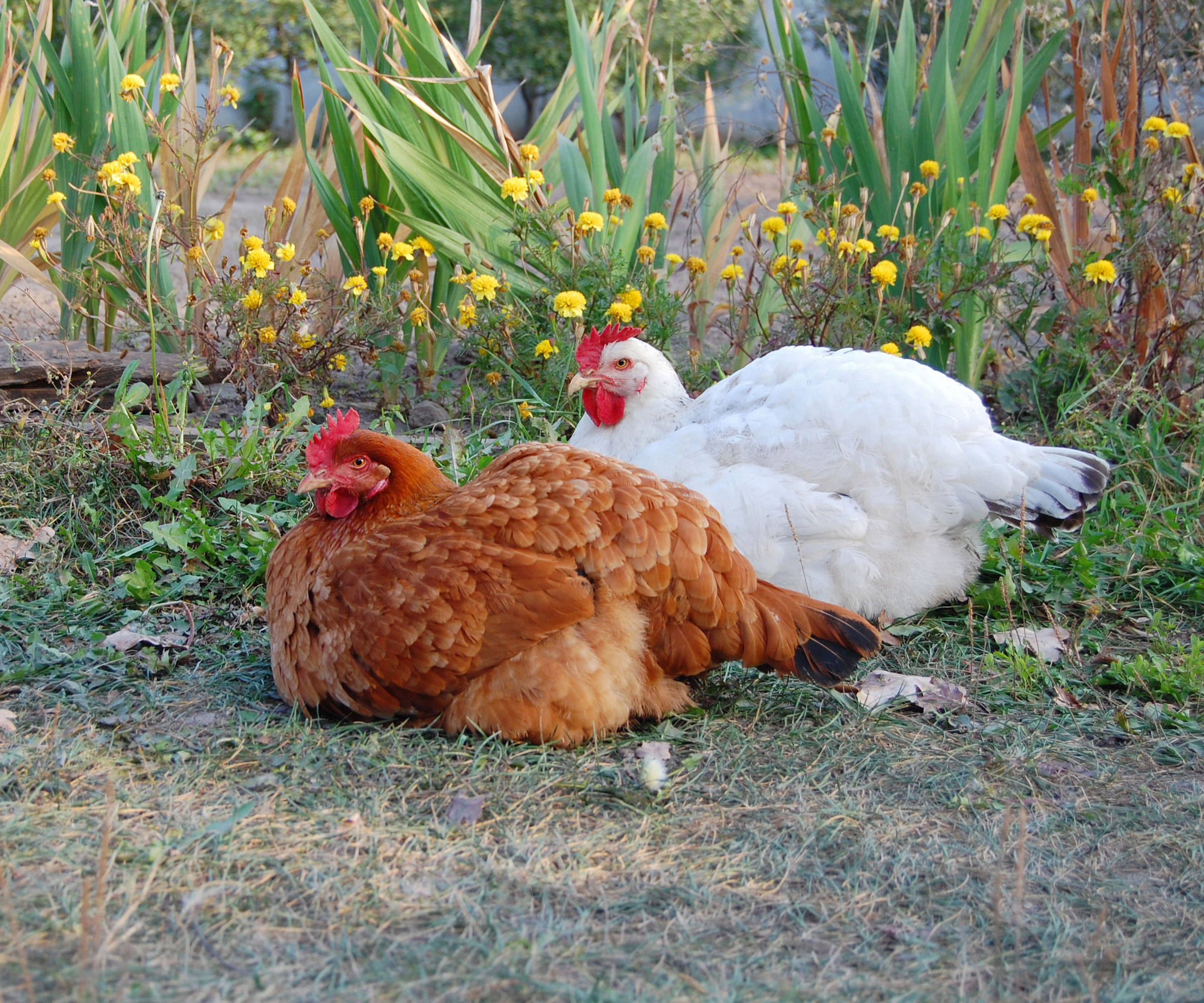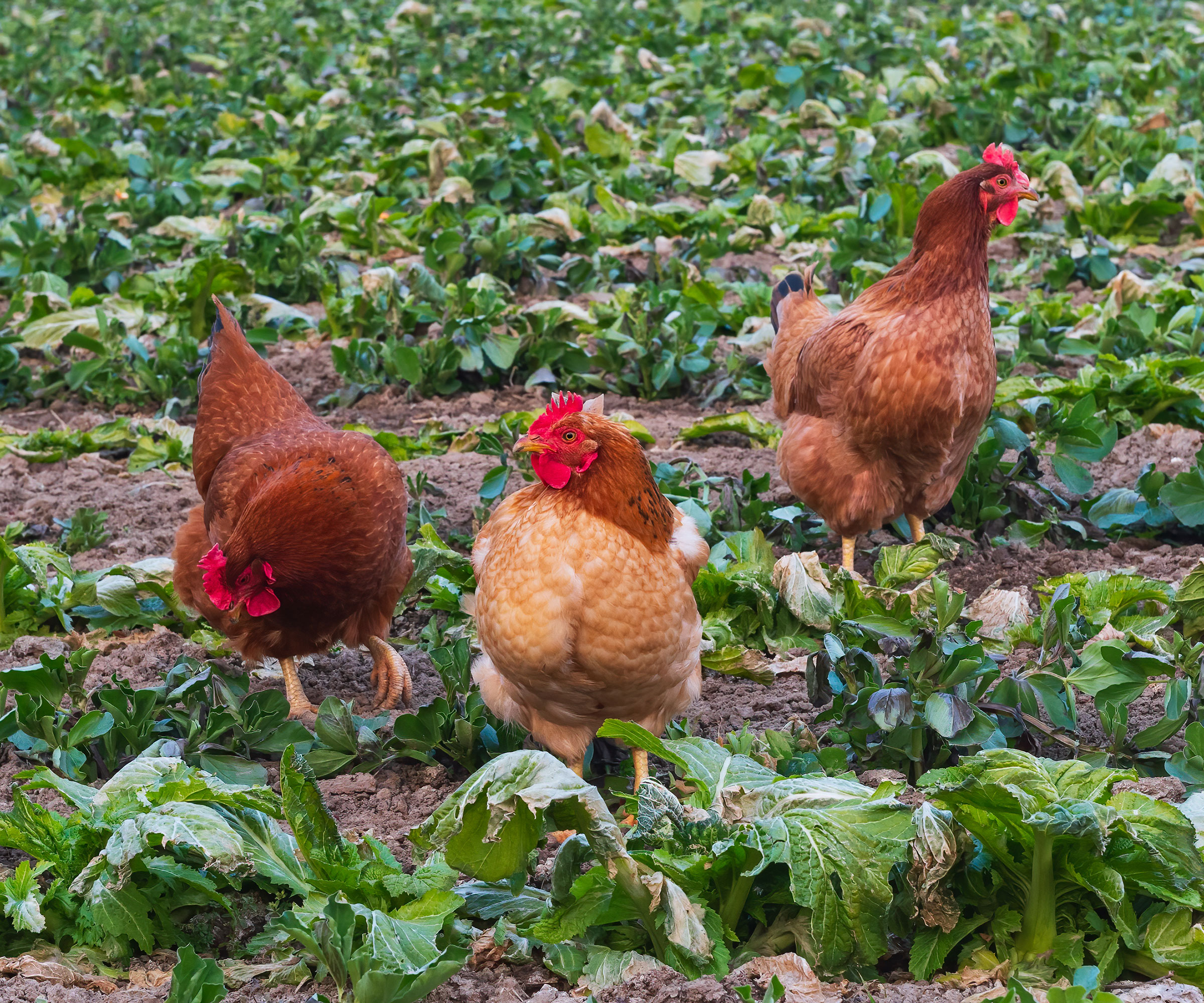
Planting for chickens is becoming popular, as the interest in chicken gardening grows. Just this morning, I was looking out my kitchen window and was greeted with the sight of a half dozen chickens pecking their way down the alley. A regular sighting, these particular fowl belong to a neighbor from whom they regularly escape. Perhaps if the owners would plant a chicken garden, the creatures would feel no need to supplement their diet elsewhere?
Currently, raising chickens in the backyard has exploded in popularity. Not only is it nice to have fresh eggs, but you can also control what your chickens eat, hopefully leading to optimally healthy eggs. Chickens are also great gardening assistants, improving soil, retarding weeds and eating up pests. Find out how easy it is to make your own chicken garden.
Common Problems Gardening With Chickens
As with most silver linings, there is a cloud lurking nearby when planting for chickens. The downside of keeping hens is that they can be indiscriminate when it comes to eating their greens, scratching for insects, or taking their dirt baths. The result can be a garden in disarray with holey produce and plants that have been dug up.
You might even see random holes scratched into the soil for a dusty bath or brooding site. As an alternative to protecting plants from chickens, creating a garden for chickens specifically can end all this mayhem.

How to Grow a Chicken Garden
First, locate an area of your garden for chickens. Chickens like and need the sun, but it is also important to provide them with some shade and habitat where they can hide from predators. You should also provide them with water in the form of a dispenser. Alternatively, you can use a water feature, provided you use no chemicals in the water.
If you want to keep your hens out of the rest of the garden, you will need to fence in the chicken garden. You’ll need to provide them with additional chicken food as well. A hundred years ago, chickens simply foraged for their food, but today many people feed them a balanced mixed and bagged feed. If you are feeding your hens in this manner, you should introduce them to other foods slowly.
If your chickens are used to having the run of the garden then they’ve been sampling all sorts of delicacies. The good news is that there are very few plants that chickens should be kept away from.
Sign up for the Gardening Know How newsletter today and receive a free copy of our e-book "How to Grow Delicious Tomatoes".

Best Plants for Chickens
For the most part, if we can eat it, chickens can. This means that a variety of veggies, herbs, and berries are excellent options for a chicken garden. Berry bushes can also double as protective habitat for your feathered friends. Here are some of the main points to consider when planting for chickens:
- If you have less domesticated fowl, it’s a good idea to incorporate underbrush to provide them with nesting sites. Provide your feathered friends with a mixture of grass and broadleaf plants or weeds to scratch in.
- In general, the more diverse the plantings are the better. Don’t worry too much about potentially toxic plants for chickens. If the chickens are busy and entertained, they will pass over these unsavory offerings in lieu of more delectable finds.
- An exception to the above is members of the Solanaceae family. Nightshade members such as eggplant, peppers, potatoes and tomatoes should not be planted in or near a chicken garden as they are deadly to the fowl.
- Do include trees and shrubs to provide shade. Those that produce seeds or fruit get extra bonus points.
Chickens in the Garden Made Simple
If you don’t have the space or inclination to create a garden just for your hens, consider allowing them to share in the bounty. Plant enough of their favorite pickings. Chickens love squash, especially pumpkins, all members of the Umbelliferae family (carrots, fennel, celery), corn, beans, peas, lettuces, Jerusalem artichokes and sunflowers.
When all else fails, consider using a chicken tractor, a moveable coop, to control your chickens' access to certain areas of the garden. That way, they can still have outdoor foraging time and contribute to the tilth of the soil without digging up your prized dahlias.
Frequently Asked Questions
Can I Let My Chickens in My Vegetable Garden?
You absolutely can allow chickens access to the veggie garden. They improve the fertility of the soil, aerate it, keep weeds down and eat pests. However, chickens are not tidy or discriminating eaters. They will likely make a mess, punch holes in leaves and generally create mayhem. You might consider restricting their movement and moving them around the garden by using a chicken tractor or other moveable coop.
Can Chickens and Gardens Coexist?
Yes, chickens and gardens can coexist, especially if you are a relaxed gardener. If you want everything to look tidy and pristine in the landscape, though, chickens may not be for you. You can control where the chickens forage by moving them around in a movable coop or chicken tractor. This will keep them out of some areas while allowing them to forage in others.

Amy Grant has been gardening for 30 years and writing for 15. A professional chef and caterer, Amy's area of expertise is culinary gardening.
